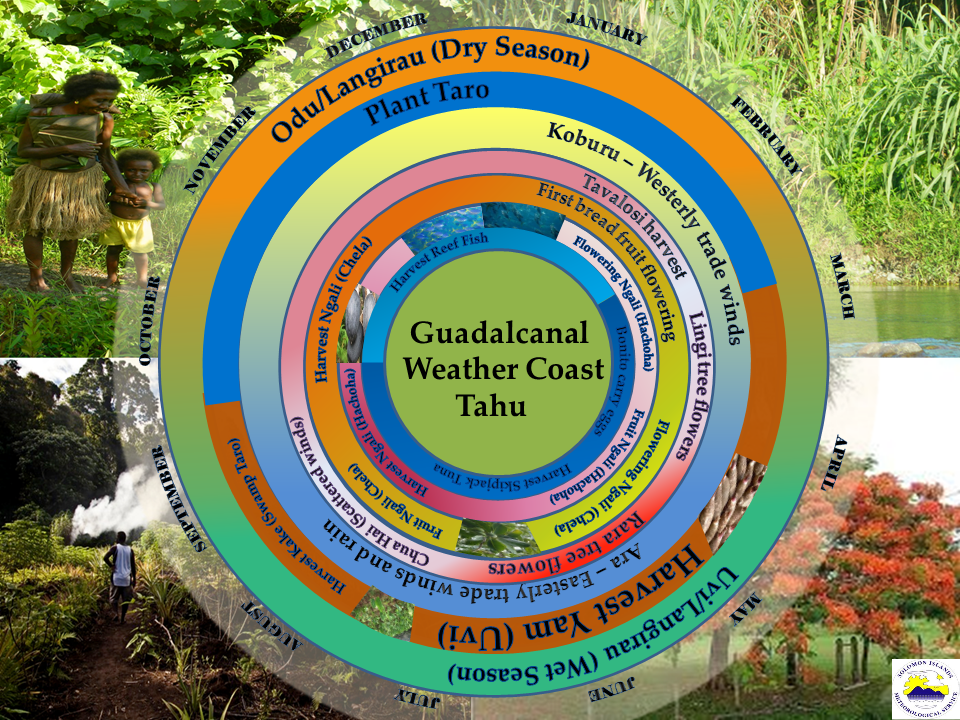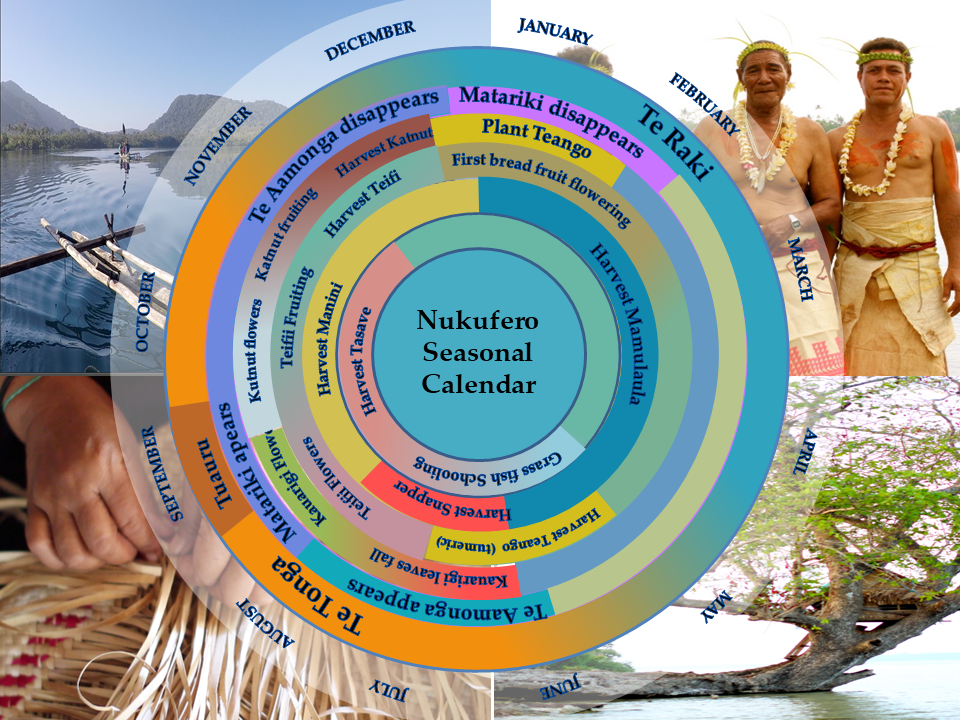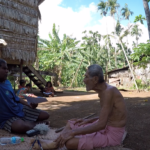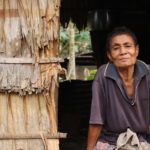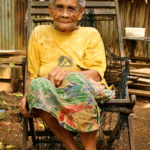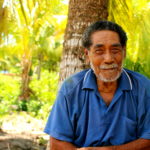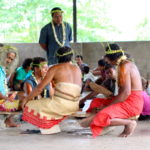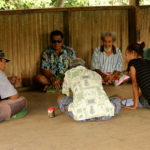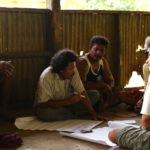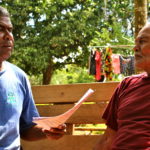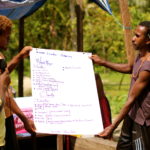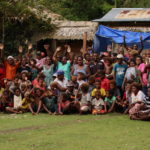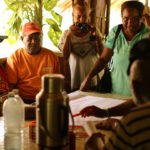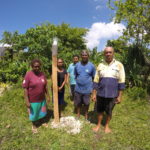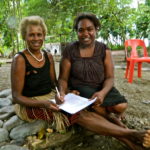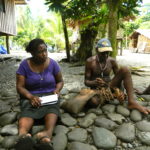The Solomon Islands is a country rich in Traditional Knowledge across many areas of life, for example, health, custom, and building. Solomon Islands Meteorological Services (SIMS) recognize this, which is why they are partaking in a pilot program under SPREP to recognize, value, and enhance the recognition and continuation of using Traditional Knowledge to predict the weather, changing seasons, climate, and natural disasters. At the end of 2014, SIMS began a project collecting stories from across the country. We believe this knowledge held by our elders can help us strengthen our climate forecasting, improve our communication with communities, ensure custom preservation, and help build community resilience to natural disasters and extreme weather.
SIMS is aware that the wisdom of our ancestors is fast being lost as people do not realize the value of Traditional Knowledge and are not taking the time to learn from their elders. SIMS is committed to highlighting, valuing, and using this knowledge within mainstream services. SIMS also recognizes the sensitivity of some of this knowledge and maintains strong measures to protect against the unauthorized spread of this into the wrong hands.
This project has three main aims:
1. To record and archive Traditional Knowledge about weather and climate for posterity
2. To revive Traditional Knowledge to maintain community resilience to extreme weather and natural disasters and foster pride in culture.
3. And to integrate traditional forecasting methods into our forecasting products to improve communication with the public and strengthen SIMS forecasts.
There are five key stages to this project:
1. Documenting traditional knowledge relating to weather and climate
2. Archiving and promoting the value of that knowledge
3. Monitoring traditional weather and climate prediction methods
4. Analyzing and integrating reliable traditional methods into met service forecast products
5. Disseminating integrated forecast products back to communities
This is a long-term project as the monitoring phase will take at least three years to test the reliability of Traditional Prediction Methods. As the program is currently unfunded, outreach work to monitor and establish new sites is on hold. With ongoing support, it is expected that within three to four years SIMS will be able to produce regular integrated climate outlooks.
In the meantime, SIMS has been compiling seasonal calendars for the communities visited that outline key activities for people living in rural areas including crop planting times and fishing activities, as well as prevailing winds and key climate indicators such as tree flowering times.
While funding for this project is an ongoing struggle The Ministry of Environment, Climate Change, Disaster Management, and Meteorology is very committed to the project and will seek to find means to continue support for it. Communities and members of the public have also responded very positively to the project and believe it will greatly benefit communities.
SIMS is committed to supporting and promoting the rich and diverse cultural heritage of the Solomon Islands. We believe Traditional Knowledge builds proud cultural identities, and when it comes to weather and climate, it can also save lives.

